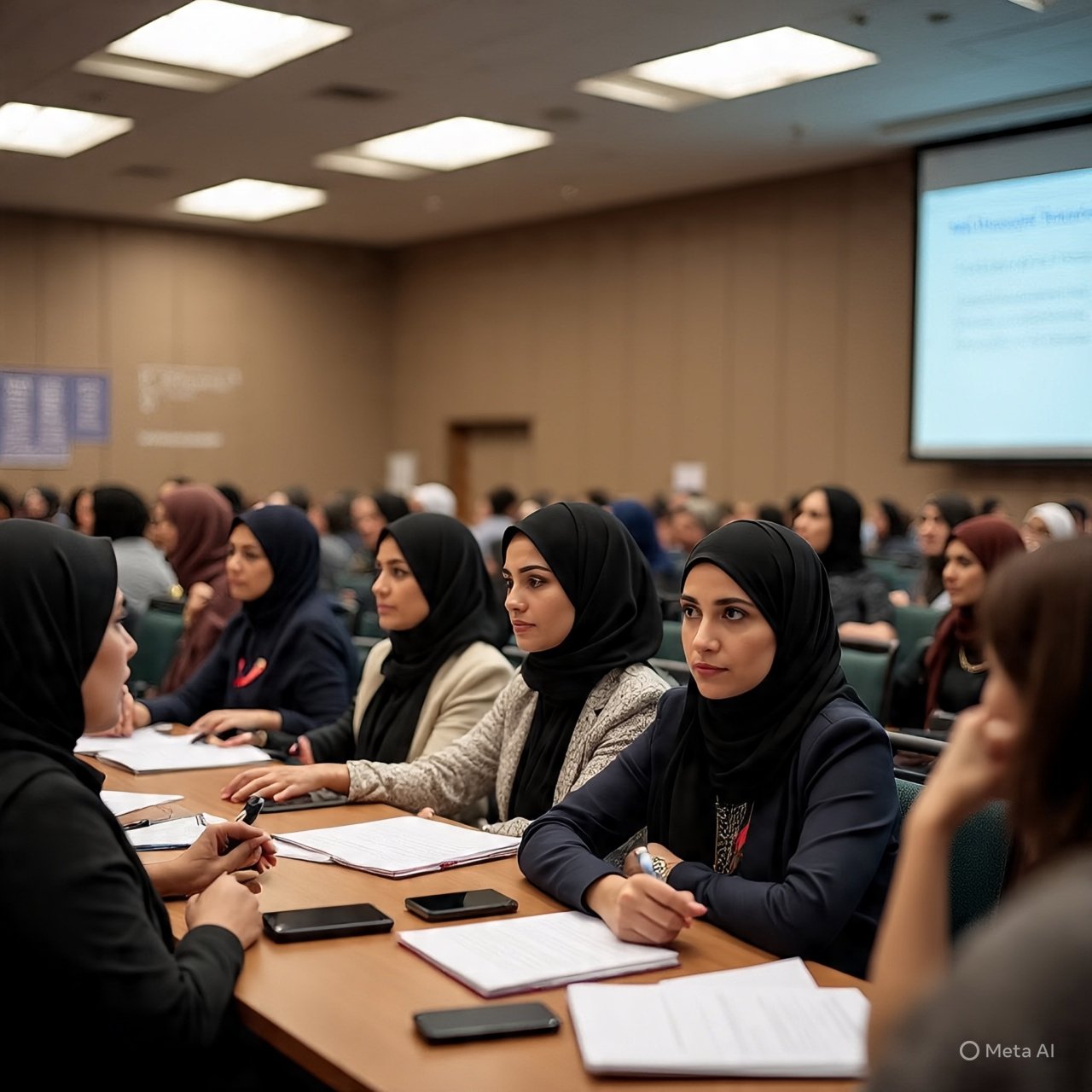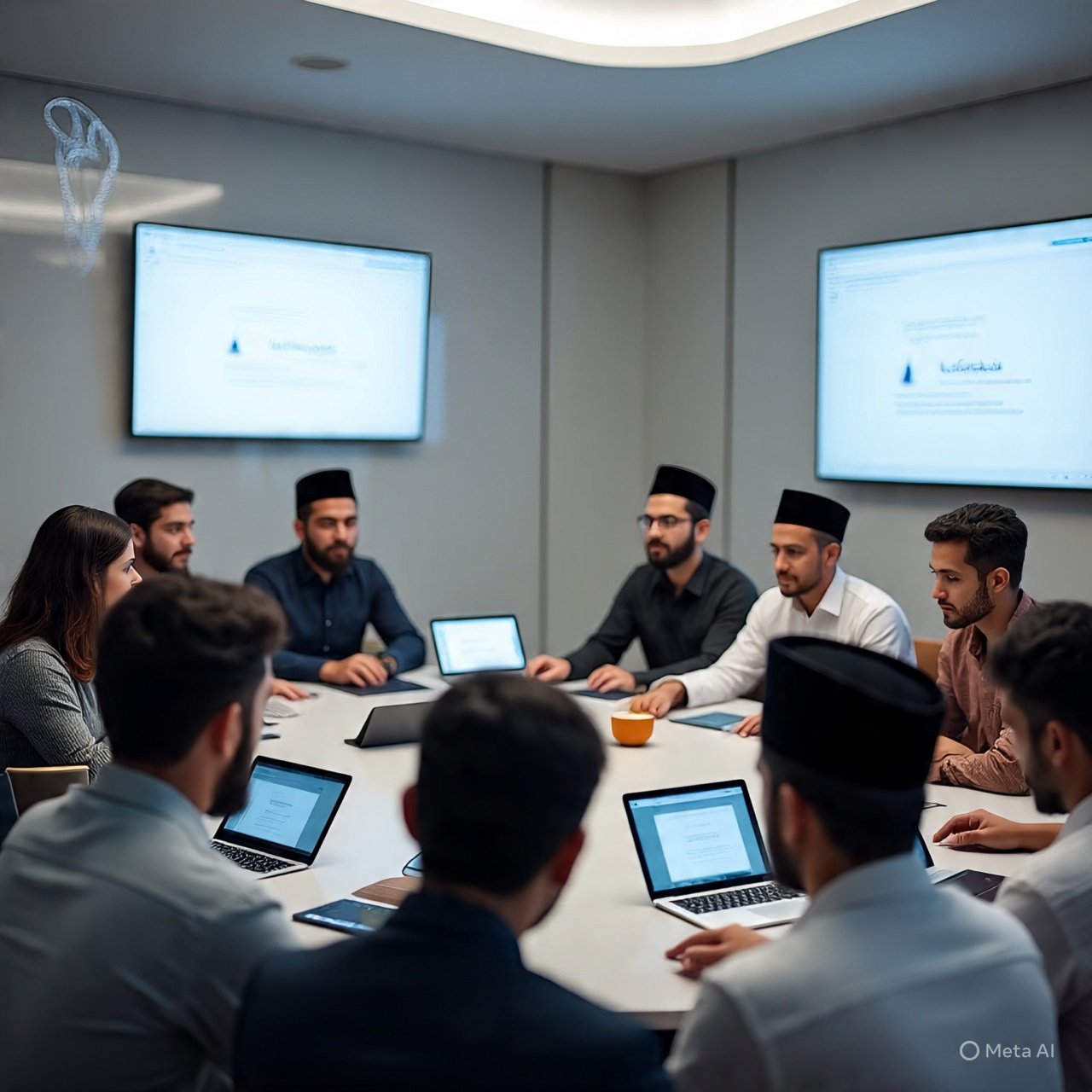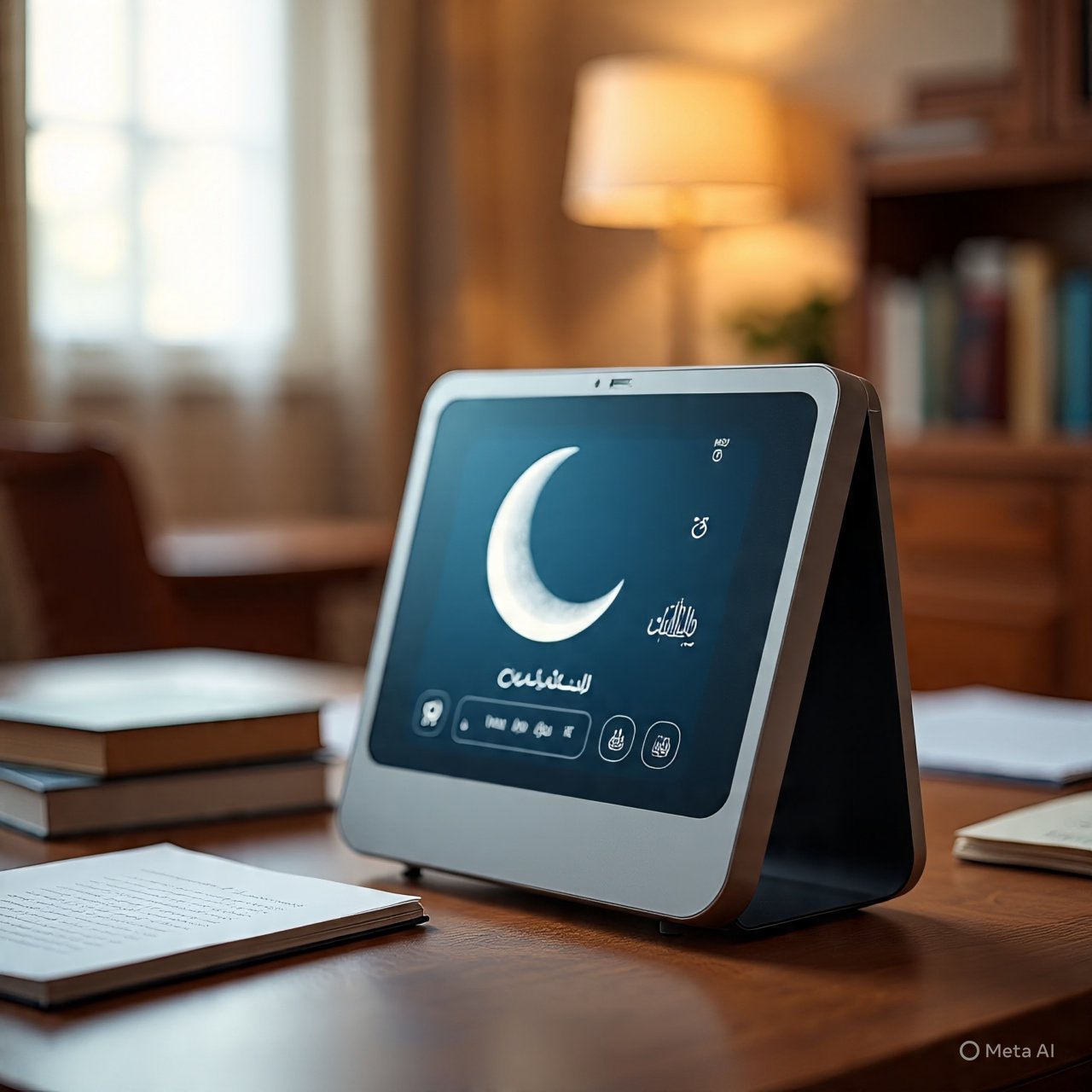Women Scholars Rising – Islamic Conferences 2026
Introduction
In the contemporary era, a revolutionary transformation is taking place on the intellectual horizon of the Muslim world, where a new generation of women scholars and researchers is emerging. This trend is not merely about increasing numbers, but rather a precursor to a fundamental structural change in the mainstream academic tradition. The title “Women Scholars Rising – Islamic conferences 2026” reflects this magnificent movement, which will reach its peak through international Islamic conferences to be held in the coming years. These conferences will not merely be ceremonies or formal gatherings, but rather dynamic platforms where women’s intellectual capabilities, research work, and juristic ijtihad will be recognized and appreciated at the global level. This article will shed light on various aspects of this movement while detailing the potential framework, objectives, and expectations associated with the 2026 conferences, in order to map out the beginning of a new era.
New Interpretation of Academic Heritage: The Role of Women Scholars in History and 2026’s Innovation
If we carefully examine ancient Islamic history, we find a splendid tradition of women in the field of knowledge and wisdom, stretching from Hazrat Aisha’s expertise in Hadith sciences to founders like Fatima al-Fihri of the University of Al-Qarawiyyin in the Middle Ages. However, over time, socio-cultural changes somewhat limited their role. Now, the primary objective of the 2026 conferences is not only to rediscover this lost heritage but to present it with new interpretation and explanation in the context of the modern era. These conferences will emphasize how women scholars solved academic problems in the past and how their achievements can guide us today. These gatherings will not only present new translations and interpretations of historical texts but will also launch a modern “Digital Encyclopedia of Women Scholars” to categorize women’s academic services, which will compile the biographies, works, and academic contributions of prominent women from every era. Additionally, teams of archaeologists and historians will present projects to discover these women’s personal diaries, letters, and unpublished documents, which will prove helpful in understanding their mental and spiritual struggles.
Global Platform: New Structure and Partnerships of International Conferences
The scope of the 2026 conferences will be much broader than traditional gatherings, including academic centers from the Middle East, South Asia, Europe, North America, and Africa. Each regional conference will cover topics according to its specific cultural and academic background. For example, Malaysia will focus specifically on “Women in Academic Leadership,” while Turkey will host seminars on “Women and Modern Fiqh.” The conference held in Egypt will give central importance to the work of women Quranic commentators. The special feature of these conferences will be that they will work in collaboration with global Islamic organizations such as OIC and the Organization of Islamic Cooperation, and also establish partnerships with international universities such as Al-Azhar University, University of Malaysia, and University of Madinah. Additionally, a global “Mentorship Network” of women scholars will be established, where experienced women will guide the new generation. After each conference, a “Global Action Plan” will be issued, incorporating participants’ suggestions to determine future strategy.
Contemporary Issues and Juristic Solutions: The New Era of Women’s Ijtihad
An important focus of the 2026 conferences will be to highlight women’s juristic role in finding fiqh solutions to contemporary issues. These gatherings will focus on topics facing today’s era, such as artificial intelligence and ethics, biotechnology and Islamic law, women’s financial rights, and modern challenges in family laws. Women scholars will present their research papers on these issues, which will not only benefit from traditional fiqh sources but also present new solutions in the context of current socio-economic conditions. Each conference will establish “Ijtihad Panels” where participants can obtain immediate answers to questions. Additionally, an “Open Source Fiqh Database” will be created, where women’s ijtihads will be collected and made accessible to researchers worldwide. This initiative will be revolutionary in that it will promote juristic diversity and effectively incorporate women’s perspectives into legislation.
Women in Science and Technology: Harmony Between Islamic Teachings and Modern Science
Creating harmony between Islamic teachings and modern science will be an important aspect of the 2026 conferences. Women scientists and researchers will shed light on how Islamic principles can be integrated with modern medical research, environmental science, and digital technology. For example, sessions on “Islamic Bioethics” will be held under genetic engineering and its ethical aspects. Similarly, discussions on Islamic concepts of environmental protection will take place under the title “Green Islam,” where projects to run environmental awareness campaigns led by women will be presented. In the technology sector, “Islamic EdTech” platforms will be developed for women, which will help them in online religious education. Also, under “Women in STEM,” training programs will be arranged for girls in Muslim countries in the fields of science and technology, so they can play their role in modern sciences as well.
Educational Reforms: Harmony Between Religious Seminaries and Modern Universities
Educational reforms will receive central importance in the 2026 conferences, with special emphasis on creating harmony between religious seminaries and modern universities. Women scholars will consider how contemporary sciences can be included in religious education institutions and how Islamic sciences can be promoted in modern universities. In this regard, “Integrated Curriculum” models will be presented that will serve as a bridge between both systems. For example, a new “Bachelor of Islamic Sciences and Modern Disciplines” program will be introduced, in which female students will be educated in religious sciences along with computer science, economics, or medicine. Under women’s leadership, an “Education Policy Task Force” will be established in the conferences, which will work on curriculum reforms with educational boards of different countries. Also, “Teacher Training Workshops” will be organized where teachers will be informed about modern teaching methods.
Interfaith Dialogue: Peace and Understanding Under Women’s Leadership
The 2026 conferences will give a new direction to interfaith dialogue, where women scholars will play a central role. This dialogue will not be merely ceremonial, but its purpose will be to promote interfaith harmony through practical measures. Women leaders from Jewish, Christian, Hindu, and Buddhist faiths will be invited to the conferences so that discussions can be held on shared moral values and social service projects. In this regard, an “Interfaith Women Alliance” will be established, which will work on solving common social issues such as poverty, lack of education, and climate change. Also, an “Interfaith Dialogue Charter” will be prepared, in which participants will agree on principles of mutual respect and understanding. This dialogue under women’s leadership is also important because they can reduce differences with feelings of gentleness and compassion and work towards achieving common goals.
Media and Communications: Modern Means to Amplify Women’s Voices
In the current era, media and communication means play an important role in spreading any message. The 2026 conferences will give detailed consideration to modern media strategies to effectively amplify women scholars’ voices. Under this, social media campaigns, podcast series, and YouTube channels will be launched, which will convey women’s academic work to the public. A “Digital Scholars Academy” will be established where women will be trained in media on how to present their ideas in an attractive and effective manner. Also, an international “Islamic Women News Network” will be formed, which will highlight women’s issues and their achievements. Under “Media Ethics,” there will also be discussions in the conferences on how to present a positive image of women and counter negative propaganda against them. Additionally, “Virtual Conference Platforms” will be promoted so that women from remote areas can also participate in these gatherings.
Economic Empowerment: Financial Solutions for Women Scholars
Economic empowerment is essential for women scholars to continue their academic work. The 2026 conferences will give special attention to solving financial problems for women. In this regard, a “Women Scholars Fund” will be established, which will provide financial support for their research projects, book publications, and international travel expenses. Also, under “Islamic Microfinance,” loans will be given to women’s small businesses so they can become economically self-sufficient. “Financial Literacy Workshops” will be organized in the conferences, where women will be informed about budgeting, investment, and principles of Islamic banking. An “Incubation Center” will also be established where women can give business shape to their academic work, such as online courses, academic applications, or research institutions. Additionally, under “Women in Leadership,” training programs will be arranged to increase women’s participation in the corporate world.
Guiding the New Generation: Training Programs for Young Female Students
An important objective of the 2026 conferences is to arrange training programs to bring the new generation of female students forward in the field of knowledge and research. In this regard, a “Youth Scholars Forum” will be established where young female students can present their ideas and research work. Also, under “Mentorship Programs,” experienced women scholars will guide the new generation, teaching them research methods, thesis writing, and public speaking skills. “Student Research Grants” will be announced in the conferences, which will provide financial assistance to candidate female students for their projects. Additionally, “Career Guidance Sessions” will be organized where female students will be given advice about building careers in various professional fields such as education, research, media, and social services. These programs are extremely important because they will build confidence in the new generation and provide them with the opportunity to advance in the field of knowledge.
Social Change: Women Scholars and Societal Reform
The role of women scholars is not limited to the academic field only, but they can also play an important role in social reform. The 2026 conferences will give special attention to this aspect of how women scholars can work to solve social problems. In this regard, “Social Innovation Labs” will be established where women will develop new projects to solve problems of poverty, ignorance, and health. For example, “Literacy Campaigns” will be run where women will spread the light of education in rural areas. Also, awareness campaigns against “Violence Against Women” will be run, in which solutions will be presented according to Shariah laws and modern psychology. “Community Outreach Programs” will be announced in the conferences, where women scholars will visit different areas to understand local problems and give suggestions for their solutions. These measures will strengthen women’s role in society and prove them to be an important factor in social change.
Research Directions: New Topics and Interdisciplinary Study
The 2026 conferences will direct research work towards new topics and interdisciplinary study. Women researchers will be encouraged to work on topics that are outside traditional boundaries, such as solving psychological problems under “Islamic Psychology,” treatment through art under “Islamic Art Therapy,” or business ethics under “Islamic Management Sciences.” Also, to promote interdisciplinary research, “Research Consortia” will be established where experts from different fields will work together. “Research Methodology” workshops will be organized in the conferences, where women will be informed about modern research methods. Additionally, an “Online Research Repository” will be created where women’s research papers, books, and other academic material will be collected so they can be accessible to researchers globally.
Future Strategy: 2030 Goals and Permanent Platforms
The purpose of the 2026 conferences will not be limited to a one-time event, but rather to develop a clear strategy for the future. In this regard, the “Women Scholars Action Plan 2030” will be announced, in which specific goals for the coming four years will be set. These goals will focus on strengthening women’s academic leadership, promoting research work, and bringing about social change. Also, a permanent “Global Council of Women Scholars” will be established, which will work to monitor these goals and achieve them. A “Technology Task Force” will also be formed in the conferences, which will consider how technologies like artificial intelligence and blockchain can be used in women’s academic work. Additionally, an “International Award” will be announced, which will be given each year to some prominent woman scholar in recognition of her academic services.
Spiritual Development: Balance Between Knowledge and Worship
Maintaining balance between knowledge and worship is very important for women scholars. The 2026 conferences will give special attention to this aspect of how women can focus on their spiritual development along with their academic engagements. In this regard, “Spiritual Welfare Sessions” will be organized where Sufis and spiritual leaders will inform women about methods of remembrance, meditation, and self-purification. Also, workshops on “Knowledge and Worship” will be held where it will be taught how academic work can be performed considering it as worship. Discussions on “Women’s Spiritual Leadership” will also take place in the conferences, in which their role in imamat and preaching will be discussed. Additionally, a “Digital Spiritual Library” will be created where women’s spiritual experiences and advice will be collected so they can become a source of guidance for others.
Cultural Diversity: Respect and Unity of Various Islamic Cultures
Cultural diversity is a reality in the Muslim world, and the 2026 conferences will present this diversity with respect and unity. Women scholars belong to different cultural backgrounds, and their cultural experiences are reflected in their academic work. The conferences will emphasize how harmony can be created between different cultures and how shared Islamic values can be promoted. In this regard, “Cultural Exchange Programs” will be arranged where women will learn about each other’s cultural customs. Also, exhibitions will be set up under “Cultural Heritage” where the academic services of women from different regions will be presented. Discussions on “Linguistic Diversity” will also take place in the conferences, where women will be encouraged to publish knowledge in different languages. Additionally, a “Center for Intercultural Research” will be established, which will promote academic cooperation between different cultures.
Networking and Collaboration: Building a Global Community
An important objective of the 2026 conferences is to promote networking and collaboration among women scholars. In this regard, a “Global Women Scholars Network” will be established, which will provide opportunities for academic exchange, joint research projects, and mutual cooperation among women. Also, an “Online Community Platform” will be created where women can exchange ideas and learn from each other. “Partnership Forums” will be organized in the conferences where women scholars can establish partnerships with various institutions and organizations. Additionally, “International Visits” will be arranged where women can visit each other’s countries and learn about the academic environment there. This network is extremely important because it will provide women with the opportunity to benefit from each other’s experiences and further polish their academic capabilities.
Conclusion: The Beginning of a New Era
The series of 2026 conferences will not be merely a scientific or cultural event, but rather the beginning of a new era, in which women scholars’ voices will have central importance. These gatherings will not only highlight their academic capabilities but will also help them build a strong community at the global level. In the coming years, these conferences will take the shape of a permanent movement, which will not only strengthen Islam’s academic heritage but will also open new paths for serving all of humanity. The purpose of this journey is not only women’s advancement, but the construction of a balanced and harmonious society where peace and tranquility can be established on the foundation of knowledge, wisdom, and justice.


